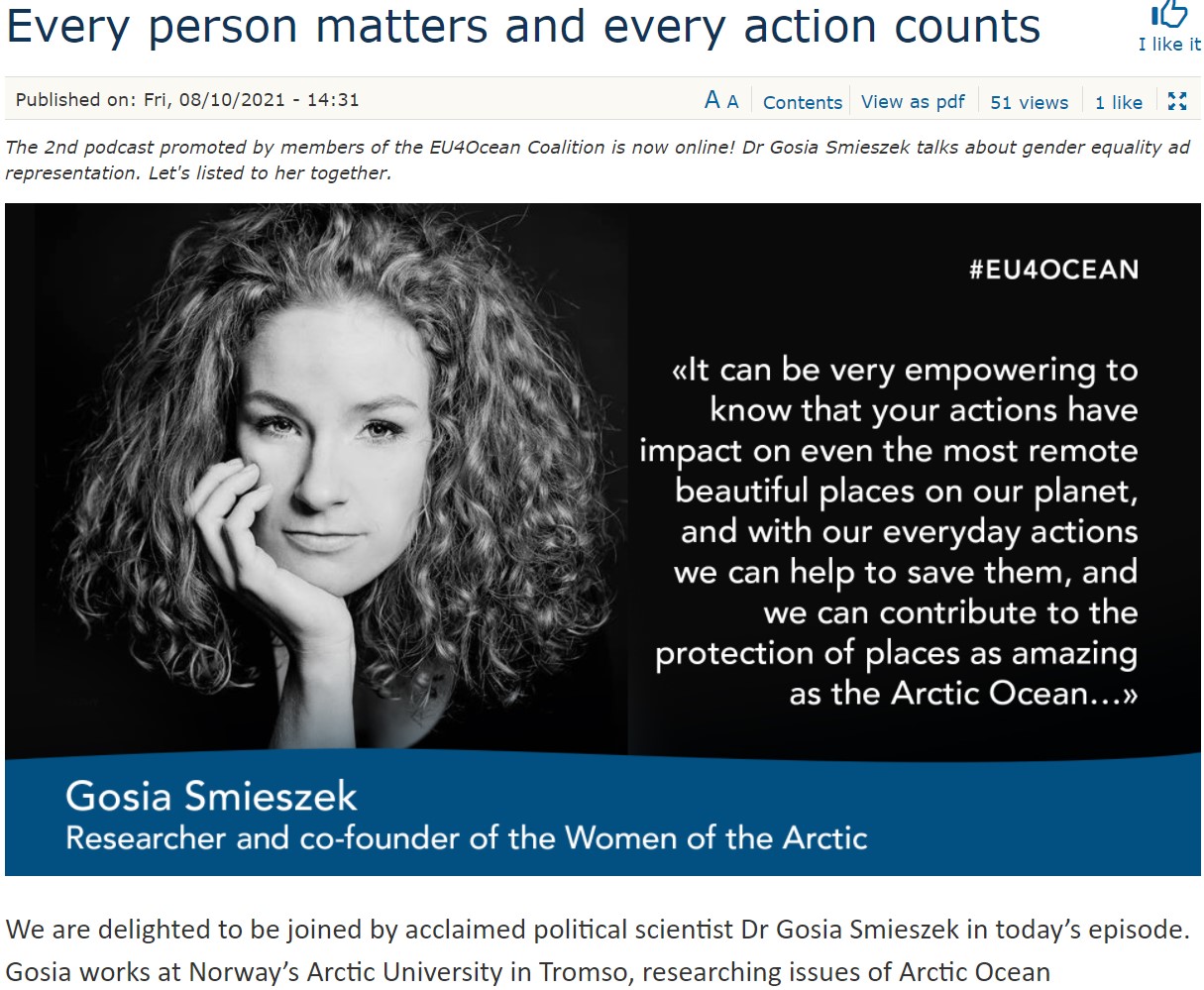Arctic Passion Scientists Featured On Eu4oceans Podcast
by Sabrina Heerema | Published: 14-Jan-22 | Last updated: 14-Jan-22 | Tags : Arctic EU gender oceans | category: NEWS
Arctic PASSION scientists have been actively contributing their expertise on the European Commission’s EU4Ocean podcast called “If oceans could speak” which aims to be a focal point for organizations and initiatives to connect, collaborate and mobilize efforts on ocean literacy. Episode 2 featured Dr. Gosia Smieszek who spoke about gender equality and representation and episode 5 featured Dr. Volker Rachold who shared his hopes and concerns about the future of the Arctic ocean.
“Gender is really central to so many discussions that we have in the region and about the future of the Arctic but a few years ago it was still really not the case that it would be brought up in forums all that often. I’m very happy to say that this is something that we see now changed…” (Dr Gosia Smieszek)
“Ocean literacy means to understand what the ocean means to us and at the same time how our activities affect the ocean” (Dr Volker Rachold)

Volker is head of the German Arctic Office at the
Alfred Wegener Institute, and co-leads Arctic PASSION’s work on policy and
decision-making support. Gosia works as a Project Coordinator
at UiT – The
Arctic University of Norway and is a co-founder
and co-lead of Women of the Arctic and Plan A. “Women of the Arctic” (WoA)
is a non-profit association which aims to raise awareness, support, and
maintain a focus on women’s and gender-related issues in the Arctic. Plan
A. serves as a digital storytelling platform, showcasing the personal and
professional stories of women who live and work in, as well as engage with the
Arctic. It also seeks to highlight and promote the inclusion of broader gender
perspectives in all aspects of northern life and policy. Gosia is working with WoA on
advancing the gender dimension of an Arctic Observing System, and is also part
of the team that synthesizes the overall project outcomes in terms of how a
more useful and holistic observing system could look like.
